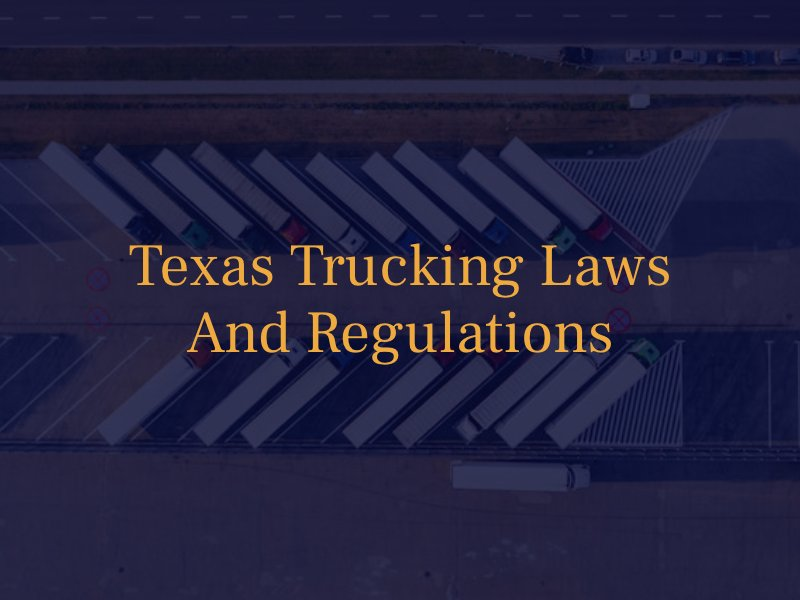
The trucking industry moves approximately 70% of all freight in the United States and the value of this cargo is more than $800 billion annually. Commercial trucking is vital to our nation’s economy. However, truck accidents make up a large percentage of traffic fatalities and injuries. In recent years, Texas has had the highest amount of fatal large truck accidents by far.
Federal and state trucking laws and regulations have been enacted to help improve the safety of our highways. Any trucking company engaged in interstate commerce must abide by the standards of the Federal Motor Carrier Safety Act (FMCSA). The FMCSA regulates everything from the maintenance and inspection of the equipment involved to the driver’s qualifications, and the actions the driver must take before, during, and after a trip.
If you have been involved in a truck accident in Dallas, you need the representation of an experienced Dallas truck accident attorney. Not every personal injury attorney is qualified to handle truck accident cases.
Your Dallas truck accident attorney must have a deep understanding of the trucking laws and regulations, where to find evidence of a trucking company’s compliance with these regulations, and how to collect the evidence needed to hold all responsible parties liable for your injuries.
The Federal Motor Carrier Safety Administration Standards
The Federal Motor Carrier Safety Administration (FMCSA) has been establishing and enforcing safety regulations for commercial truck companies and drivers involved in the interstate transportation of goods since 2000. The FMCSA regulates the testing process and procedures for drivers seeking a commercial driver’s license (CDL).
The agency also carefully monitors intrastate hazardous materials transportation and provides financial and technical assistance to local and state governments to enforce their regulations. Both the trucking company and the truck driver are responsible for abiding by all trucking laws. The company must ensure its trucks are properly maintained and safe for the road.
Drivers must drive safely and properly monitor the truck’s equipment. Trucking companies must conduct an extensive inspection of all trailers and trucks at least once per year. This inspection, known as a Minimum Periodic Inspection, must cover the brake system, coupling devices, exhaust system, fuel system, and many more functions.
Truck drivers must also inspect their trucks and trailers to ensure they are safe before beginning a trip. They also are required to complete a post-trip inspection and list any issues or defects that affect the safe operation of their vehicle.
If any issue is found during a driver’s inspection, the problem must be corrected before the truck can go back on the road.
Regulating Speed and Weight Limits
The speed limit for all large commercial trucks in Texas is 70 miles per hour during the day and 65 miles per hour at night. Federal regulations dictate a maximum truck weight of 80,000 pounds when the truck and trailer are fully loaded with cargo.
There are also strict regulations regarding how cargo is loaded and secured onto the truck. These include the types of tie-downs permitted for use and which person in the company is responsible for checking that the cargo is secure before the driver hits the road.
Texas Commercial Drivers License Regulations
You need a current commercial driver’s license (CDL) to operate a commercial truck in Texas. Texas has three classes of CDLs that drivers may need depending on the type of vehicle they intend to operate.
- A Class A CDL allows a driver to operate a vehicle with a gross combined weight of 26,001 pounds or more or a combination of vehicles with a gross combined weight of 26,001 if the weight of the vehicle being towed is 10,000 pounds or less. A Class A CDL also permits a driver to operate any Class B or Class C vehicle.
- A Class B CDL allows a driver to operate a single vehicle with a gross combined weight of 26,001 pounds or more, or a single vehicle with a gross combined weight of 26,001 or more that is towing a vehicle with a gross vehicle weight that does not exceed 10,000 pounds, or a farm trailer with a gross vehicle weight that does not exceed 20,000 pounds. A Class B CDL also permits a driver to operate a bus with a seating capacity of 24 passengers or more including the driver, and any Class C vehicle.
- A Class C CDL allows a driver to operate a single vehicle or a combination of vehicles that are not included in Class A or B, or a single vehicle with a gross vehicle weight of less than 26,001 pounds towing a farm trailer with a gross weight that does not exceed 20,000 pounds. A Class C license also permits a driver to transport 23 or fewer passengers including the driver, and an autocycle.
Truck Insurance Regulations
Texas and federal laws require commercial vehicles to carry a minimum level of insurance based on vehicle category. The lowest amount of coverage is $300,000 for trucks weighing 26,000 pounds or less and transporting household goods within the State of Texas. A truck weighing more than 26,000 pounds and hauling household goods within Texas borders must have a minimum of $500,000 insurance coverage.
When household goods are transported outside the State of Texas, and the cargo weighs 10,000 pounds or more, the federal regulations require a minimum liability coverage of $750,000. Trucks hauling oil are required to carry a minimum of $1 million in coverage and trucks hauling any hazardous material must have a minimum coverage of $5 million under both federal and Texas laws.
Potentially Liable Parties in Dallas Truck Accidents
Truck accidents are more complicated than those involving only passenger vehicles for several reasons. One of the biggest differences is in the number of potentially liable parties. In a trucking accident, multiple parties could be responsible. For example:
- The driver
- The trucking company
- The maintenance company
- The cargo loading company
- The manufacturer of defective parts or equipment
- A government entity responsible for a dangerous road condition
You need to have an experienced Dallas truck accident attorney representing you. They know how to investigate the accident thoroughly to determine possible causes and all potentially liable parties. They also know how to recover the essential evidence to prove your claim and get you the maximum compensation you deserve.
Schedule a Consultation With an Experienced Dallas Truck Accident Lawyer Today
At Bush & Bush Law Group, our Dallas personal injury attorneys have a deep understanding of the trucking laws and regulations in Dallas. We also have extensive experience successfully representing truck accident victims and recovering maximum compensation for them. We would like to do the same for you. Schedule a free consultation today by calling (469) 977-7777 or visiting our contact page.












